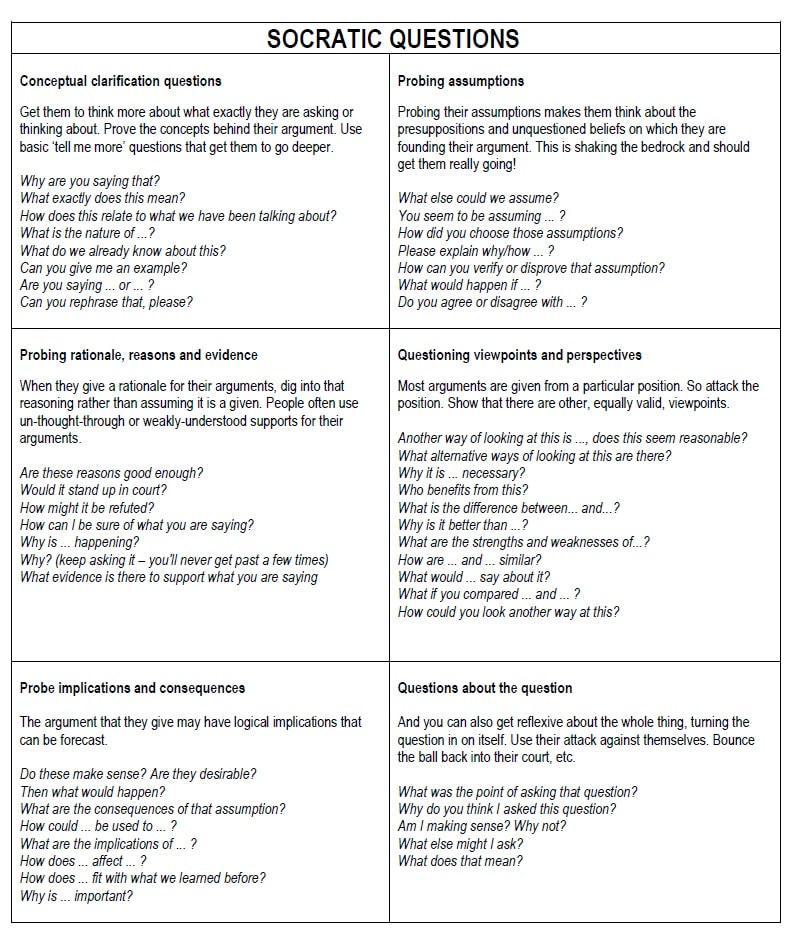45. SOCRATIC QUESTIONS (Feedback, Questioning, Discussion)
Description: Based on the work of Socrates, Socratic Questions are meant to test students’ accuracy and completeness of thought.
Application: Use Socratic Questions when breadth and depth of understanding is most important.
Process: Depending on the type of learning desired, ask questions from the following categories: Clarifying questions are “tell me more” questions that make students think deeper.
Probing questions are questions that may challenge previous beliefs or suppositions.
Probing rationale, reasons and evidence is a way for the teacher to force students to provide logical rationale,
reasons, and evidence of what they are thinking.
Questioning viewpoints and perspectives is a way for teachers to push students to think about others’ viewpoints.
Exploring implications and consequences can be fruitful when students must project consequences of an action.
The strategy, Questions about the Question, returns a question to the student by challenging an asked question (Addendum below).
Description: Based on the work of Socrates, Socratic Questions are meant to test students’ accuracy and completeness of thought.
Application: Use Socratic Questions when breadth and depth of understanding is most important.
Process: Depending on the type of learning desired, ask questions from the following categories: Clarifying questions are “tell me more” questions that make students think deeper.
Probing questions are questions that may challenge previous beliefs or suppositions.
Probing rationale, reasons and evidence is a way for the teacher to force students to provide logical rationale,
reasons, and evidence of what they are thinking.
Questioning viewpoints and perspectives is a way for teachers to push students to think about others’ viewpoints.
Exploring implications and consequences can be fruitful when students must project consequences of an action.
The strategy, Questions about the Question, returns a question to the student by challenging an asked question (Addendum below).
Reference, graphic, and/or for more information:
45. Socratic Questions
http://changingminds.org/techniques/Questioning for Learning/socratic_questions.htm
45. Socratic Questions
http://changingminds.org/techniques/Questioning for Learning/socratic_questions.htm

